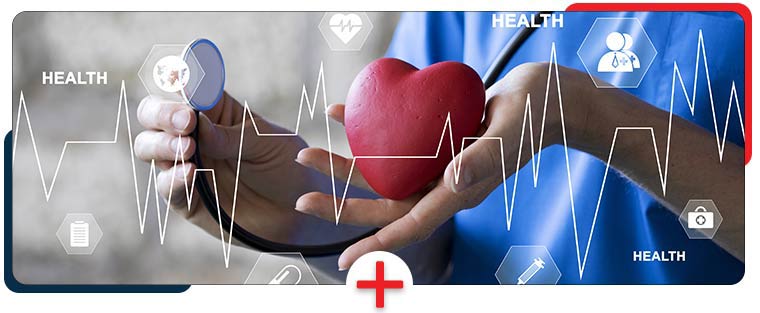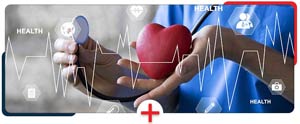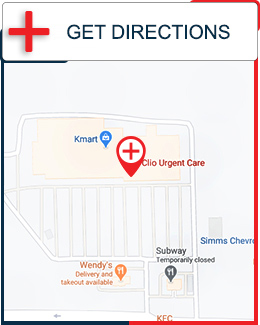Signs That You May Need An Electrocardiogram (EKG)
If you’re experiencing chest pain, irregular heartbeats, or shortness of breath, an EKG may be necessary to assess your heart health. At Clio Urgent Care, our team of healthcare professionals is here to help identify the signs that indicate you may need an electrocardiogram. We offer fast, reliable testing to give you peace of mind and ensure you receive the appropriate care. Trust our experts to provide personalized guidance on heart health and help you make informed decisions. For more information, please contact us or simply walk in! You can also schedule your appointment online. We are conveniently located at 4272 W. Vienna Road Clio, MI 48420.


Table of Contents:
What heart conditions can an EKG help identify?
How does an EKG provide insight into your heart’s electrical activity?
Can an EKG reveal signs of heart disease or a past heart attack?
What can an EKG tell you about your heart’s rhythm and function?
At Clio Urgent Care, Alyse Ketner, PA-C, understands the importance of timely and accurate heart assessments. Our experienced medical team utilizes electrocardiograms (EKG or ECG) as a critical diagnostic tool to quickly detect and evaluate various heart conditions right here at our facility. An EKG measures your heart’s electrical activity, providing essential insights into its rhythm, rate, and overall cardiac function.
With onsite EKG testing, we can rapidly identify abnormal heart rhythms (arrhythmias) such as atrial fibrillation, atrial flutter, ventricular tachycardia, and ventricular fibrillation. Our providers also use EKGs to identify evidence of heart attacks (myocardial infarction), highlighting areas of reduced blood flow or damaged heart tissue, ensuring prompt intervention and management.
Additionally, our EKGs can detect conditions associated with heart enlargement or hypertrophy, such as left or right ventricular hypertrophy, often resulting from high blood pressure or chronic cardiac diseases. Conduction abnormalities, like bundle branch blocks, and electrolyte imbalances affecting heart rhythm and function can also be swiftly identified through our onsite EKGs.
At Clio Urgent Care, our EKG services assist in diagnosing conditions such as pericarditis (inflammation of the membrane surrounding the heart) and provide clues about structural heart diseases—including congenital heart defects. While an EKG alone cannot definitively diagnose every heart condition, the insights gained through this testing play a crucial role in guiding further evaluations, treatment strategies, and overall patient care.
At Clio Urgent Care, we utilize advanced diagnostic tools, including electrocardiograms (EKG or ECG), to quickly evaluate and monitor your heart’s electrical activity. An EKG is a non-invasive, painless test that helps our medical providers assess your heart’s rhythm and overall cardiac function, especially in urgent or emergency situations.
Your heart contracts and pumps blood throughout your body based on electrical impulses generated by specialized cardiac cells. These impulses travel through specific pathways, coordinating the heart’s rhythmic contractions. At our urgent care, our healthcare professionals place small electrodes at precise locations on your skin to accurately capture these electrical signals.
The recorded signals appear as wave patterns, each representing different phases of your heart’s electrical activity. Our experienced providers examine these waveforms to detect potential abnormalities such as arrhythmias (abnormal heart rhythms), conduction pathway issues, reduced blood flow (ischemia), or signs of previous heart attacks.
By carefully analyzing the EKG results, our team can identify if certain areas of your heart muscle are enlarged, strained, or receiving insufficient blood supply. Additionally, we use this diagnostic tool to quickly recognize conditions that require immediate attention, such as atrial fibrillation, ventricular tachycardia, heart block, and electrolyte imbalances.
At Clio Urgent Care, we offer prompt and comprehensive cardiac assessments, including electrocardiograms (EKGs or ECGs) to help quickly evaluate your heart health. An electrocardiogram is an essential diagnostic tool we frequently utilize in our urgent care setting to measure the electrical activity of your heart. By placing electrodes on your skin, the EKG painlessly records your heart’s rhythm, rate, and electrical patterns, enabling our providers to quickly identify any immediate concerns or abnormalities.
EKGs performed can detect a variety of cardiac issues that require timely attention. For instance, irregular heart rhythms such as arrhythmias, atrial fibrillation, or other heartbeat irregularities can be promptly identified and managed. In addition, an EKG can indicate structural heart problems, including hypertrophy (thickening of heart muscle) or enlargement of heart chambers, through characteristic electrical signals.
Importantly, our urgent care team uses EKG testing to identify signs of previous heart attacks (myocardial infarctions). Even if a heart attack occurred years earlier, the damaged heart tissue leaves behind distinctive electrical patterns—such as specific Q-wave changes—that our providers can recognize on your EKG. This information is crucial for confirming past cardiac events and guiding immediate medical decisions, as well as ensuring proper follow-up care.
However, we understand the limitations of an EKG. While it provides valuable information in an urgent care setting, it may not detect all forms of heart disease, particularly subtle signs of early-stage coronary artery disease. When necessary, our providers will coordinate further testing, such as echocardiograms, stress tests, or specialized cardiac imaging studies, to ensure you receive the most thorough evaluation possible.
At Clio Urgent Care, we are committed to delivering prompt, thorough, and compassionate care, especially when it comes to your heart health. One of the valuable diagnostic services we offer is an electrocardiogram (EKG or ECG), a non-invasive test that helps our providers quickly assess your heart’s rhythm and overall function.
An EKG records the electrical activity occurring with each heartbeat, allowing our medical team to detect cardiac irregularities promptly and effectively. At Clio Urgent Care, our providers use this tool to identify common heart rhythm problems such as atrial fibrillation, tachycardia (rapid heartbeat), bradycardia (slow heartbeat), or premature beats. Early identification of these conditions allows us to initiate immediate care, provide guidance, or refer you to specialists when necessary.
Additionally, an EKG performed at Clio Urgent Care can reveal signs of insufficient blood flow to the heart (ischemia), often associated with coronary artery disease, or identify the characteristic electrical patterns signaling a current or previous heart attack. Rapid detection enables our providers to take swift action, ensuring you receive appropriate follow-up care and treatment.
Our EKG assessments also examine your heart’s electrical conduction system, helping us recognize issues like bundle branch block or heart block, where electrical signals become delayed or obstructed. Catching these conduction abnormalities promptly allows us to coordinate timely interventions and referrals, ensuring you get the specialized care you need.
Moreover, the EKG can highlight structural changes like enlargement or thickening of the heart’s chambers or walls, conditions commonly linked to heart valve disease, cardiomyopathy, hypertension, or heart failure. While an EKG alone may not provide a definitive diagnosis of structural abnormalities, it allows our providers to quickly identify potential concerns and direct you toward appropriate testing and specialist consultations.
Don’t wait for symptoms to worsen—getting an EKG can help you take control of your heart health and prevent potential complications. Early detection is key to maintaining a healthy heart. For more information, please contact us or simply walk in! You can also schedule your appointment online. We are conveniently located at 4272 W. Vienna Road Clio, MI 48420. We serve patients from Clio MI, Montrose MI, Birch Run MI, Mount Morris MI, Beecher MI, Genesee County, MI, and surrounding areas.





